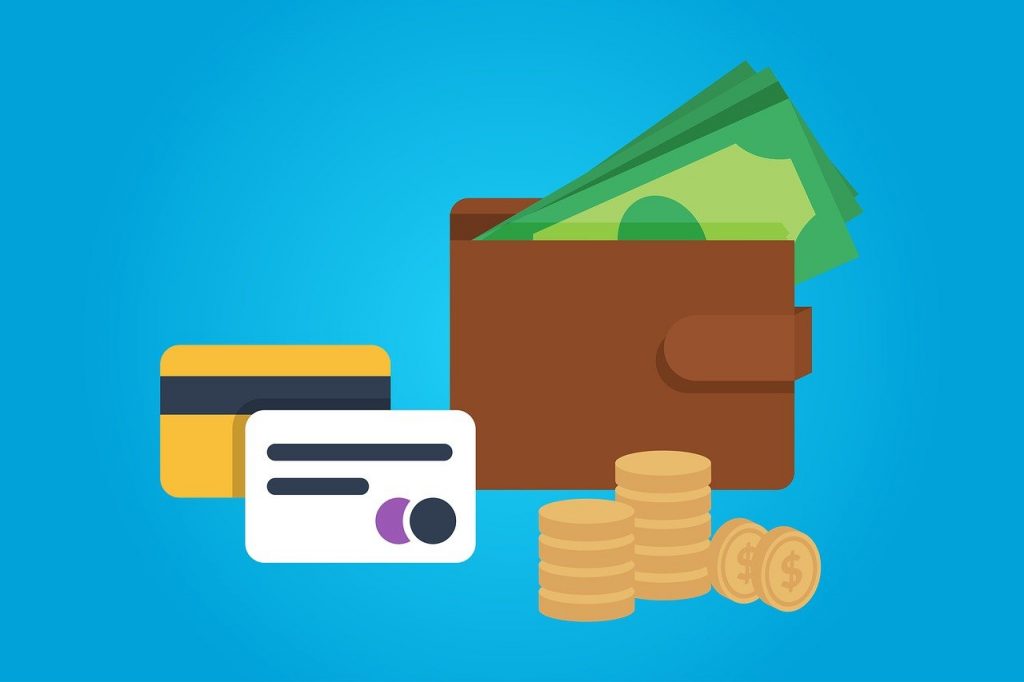Recent statistics show that 80% of people in the United States utilize online payment services. The total value of online payment gateways in the countries is expected to increase by 15% in the next few years.
Businesses prefer payment gateways, which can greatly reduce the time and energy associated with processing payments. Before you pick a provider among the available gateway payment companies, your business should learn some important details about payment gateways.
How Payment Gateways Function
A merchant service that simplifies and secures a business’s receipt of payments, regardless of whether an operation functions online or at a physical location. Payment gateways encompass both online shopping carp payments as well as card-reading hardware in retail settings. Payment gateways located at physical stores have recently begun to accept phone purchases utilizing either QR codes or Near Field Communication (NFC) technology.
How Payment Gateways Function
Before sending confidential payment card debt to an acquiring bank, a payment gateway encrypts this information and checks it for fraud. Card schemes play the role of receiving these private details from an acquiring bank and performing fraud protection before the information is transmitted to the issuing banks so the payment can be approved or declined.
The Role Of Gateway Payment Companies
Gateway payment companies, which are sometimes called payment service providers (PSPs), offer various services to sellers to help them receive payments in a quick, secure, and easy manner. These providers often provide payment gateway companies and merchant accounts, which help businesses manage and receive payments. After payments are received, this data is transmitted to the provider.
How Merchant Accounts Function
Businesses receive payments utilizing various methods, but a majority of payments are made by customers who use either debit or credit cards. An acceptor and merchant acquiring bank create merchant accounts to address payment transactions.
The Types of Structures Offered By Gateway Payment Companies
Payment gateways are divided into three categories:
- Off-site payments. While front-end payment transactions occur on a business’s website, back-end payment processing occurs at gateways. These gateways offer increased security over other approaches. Off-site payment gateways, however, are not without disadvantages. For example, businesses are unable to have control over all aspects of the checkout process.
- On-site payments. Large businesses routinely utilize on-site payment gateways that are processed on the business’s server. As a part of this process, purchasers often experience increased authority and control. If your business processes payments on-site, you must be cautious about many small payment details.
- Redirects. Hosted payment gateways (or, redirects) require purchasers to be sent to another website during the checkout process. Paypal is one of the most famous redirect companies. Many small businesses prefer redirects because these gateways are easy to build and accepted in most places.

Security Levels Provided By Gateway Payment Companies
Payment gateways provide businesses with increased security involving confidential payment card data. Data suggests that fraud involving payment gateways is almost $50 million annually. To avoid having businesses fall victim to fraud, gateway payment companies offer several levels of online security standards:
- PCI DSS compliance. The Payment Card Industry Data Security Standards (PCI DSS) are a group of global security standards utilized by card schemes. PCI DSS guards both credit and debit card payments and avoids exposing this confidential information to hackers. Businesses must follow PCI regulations to avoid falling victim to fraud.
- SSL. Payment gateways utilize a Secure Sockets Layer (SSL) before sending data over a credit card network to protect a purchaser’s confidential account data. With heightened security measures, hackers cannot obtain credit card data after it is transmitted among the various parties involved in the payment process.
Why Businesses Need Online Payment Gateways
Some of the biggest reasons why businesses require payment gateways include:
- Additional options to review. More than 80% of people in the United States own credit cards, which leads many customers to utilize alternate payment methods including Apple Pay, Paypal, and Venmo.
Simplifying customers’ lives. Customers prefer businesses that give them a wide range of options for making payments. While many businesses offer credit card payment methods to customers, not all businesses offer additional payment methods.
Advice To Follow When Selecting The Best Among Payment Gateway Companies
Deciding on what payment gateway provider to use is not easy, but following several helpful pieces of advice can greatly simplify this process. Some of the important suggestions that online businesses should utilize include:
- Determine how much your business can spend. Various costs are associated with payment gateways. Transaction fees are yet another cost associated with successful business operations. Be aware of the costs associated with your payment gateway before you decide to utilize a payment gateway on your website.
- When businesses should begin to accept payments. Several weeks are often required to begin utilizing a payment gateway. Some redirect sites, however, let businesses begin immediately accepting payments. While many payment gateways establish merchant accounts, obtaining a payment gateway can be time intensive.
- Decide how long it will take to receive sales funds. Several days must pass before payment can be cleared, even though a business might know that payment has been accepted.
- Decide on the security level of a payment gateway. Security is vital in any situation where a business is accepting funds from purchasers. Businesses should only work with service providers with adequate PCI DSS compliance.
- Distinguish if you need international payments. Businesses should examine whether payment gateways support international payments in various currencies. Businesses should also determine if a merchant account must be created in a certain country.
- Consider the payment gateway’s compatibility with other payment options. How compatible a payment gateway is with a business’s existing online platform is vital.
- Distinguish the Payment Gateway’s Available Support. Customer service can prove vital if your business encounters challenges with its payment gateway. You should also determine the level of quality offered by a provider’s customer service department.
- Review whether a payment gateway can handle recurring payments. If your business plans on accepting recurring payments, you might utilize a system that will retain credit card details from your customers and allow customers to pay recurring subscriptions automatically.
Some of the Leading Payment Gateway Companies
Some of the most popular payment gateways include:
- Adyen. Ayden is utilized by several large companies including eBay and Microsoft to handle business transactions. Ayden lets businesses control risks as well as monitor outcomes and accept payments made to businesses.
- Amazon Pay. Featuring more than 200 million Amazon prime subscribers, countless online businesses have found that Amazon Pay is a strong choice among payment gateway companies. Amazon Pay can be customized with an array of plugins.
- Apple Pay. The payment process offered by Apple utilizes some innovative technology including payments with face identification. In the last few years, Apple Pay has become one of the most popular payment methods, especially among iPhone users.
- Authorize.net. The goal of the payment provider services offered by Authorize.net is to improve the payment process for customers. The provider lets businesses both sell as well as accept payments either online or in person. The provider was created to offer strong payment services to a wide range of businesses. With the help of Authorize.net, businesses can promptly transfer funds into a merchant bank account as well as begin accepting payments on the business’s website.
- Cardstream. This payment gateway provider does not bind businesses to lengthy contracts. The company also offers appealing customer service, which is less common among larger-sized payment gateway providers.
- Opayo. Offering more than a merchant gateway, Opay provides the choice of directly entering all of a business’s income and outcome into the provider’s software. Opay offers various payment services. It’s a good idea to obtain a merchant account to make the most of the services offered by Opayo.
- Paypal. Another strong online payment platform, Paypal accepts various methods of payment. The platform is preferred by countless online businesses. Paypal is a redirect-gateway that offers various ways to personalize the platform.
- Square. Both a payment gateway provider as well as a payment processor, Square has grown substantially in the last few years. The company charges slightly more for manual transactions, which might seem like a drawback. Square, however, offers services for small businesses that require methods to address credit cards during in-person checkouts.
- Worldplay. A complete service available around the world,d Worldplay offers various payment options to companies of all sizes.

Contact Bankful For Today
At Bankful, we can help your business quickly select and utilize innovative payment methods. Providing management of all procedures, our unique financial solutions help both beginning and established businesses. All businesses should appreciate that the economy relies heavily on the existence of successful payment channels. These channels reduce obstacles for businesses and make sure that customers proceed through checkouts safely and securely. Contact us today to get started or if you have any questions about various payment methods.

